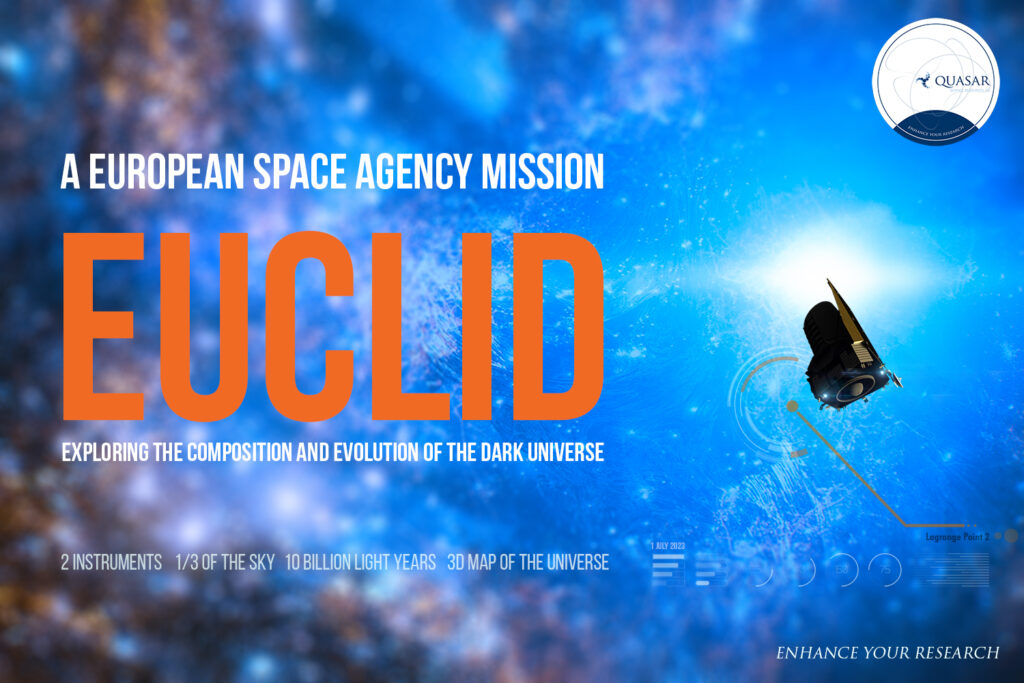
Euclid is a scientific mission from the European Space Agency (ESA) dedicated to explore the composition and evolution of the dark Universe. It was lunch this year, in July 2023, from Cape Canaveral in Florida (USA), on board a SpaceX Falcon 9. Its destination, the Lagrange point 2 at 1.5 million km from Earth. By employing a combination of visible and near-infrared imaging, as well as spectroscopy, Euclid seeks to provide crucial insights into the nature of these elusive cosmic entities, contributing to our broader understanding of the universe’s evolution.
Euclid’s Science Ground Segment (SGS) activities are shared by ESA and the Euclid Consortium, playing a pivotal role in ensuring the success of the mission. The Euclid Science Operations Centre (SOC) is hosted at ESAC, acting as the central node for mission planning, performing initial quality checks and processing of the data. It also makes the spacecraft telemetry available to the remainder of the SGS. The SOC is also responsible for the development and operations of the Euclid science archive, it populates and maintains the archive and delivers the data products to the general scientific community. The meticulous planning and execution of science ground operations at ESAC are essential for maximizing the scientific output and overall success of the Euclid mission.

Quasar provides support to the Euclid Science Ground Segment operations at ESAC in several areas,
Review and Testing of Uplink Operational Procedures: In this critical phase before launch, we have dedicated time and effort to thoroughly review and test the operational procedures of the uplink chain. The goal was to ensure their accuracy, comprehensibility, and their ability to address all routine tasks that an operator might encounter during the mission. We have made sure that these procedures are in perfect order, ready to be successfully implemented when needed.
Testing of New Features in the Euclid Survey System (ESS): The key tool for planning generation, the ESS, has undergone significant changes in the pre-launch phase and during the stages of Performance Verification (PV) and commissioning. Our contribution has been vital in validating the new versions of the ESS, actively participating in the assessment of newly implemented functions. We ensured the robustness of this tool and that it meets the necessary requirements for its crucial role in mission planning.
Configuration Control: To ensure the stability and reliability of the Scientific Operations Center (SOC), we have implemented rigorous configuration control procedures. This systematic approach aims to ensure the availability, integrity, and traceability of all software components and deliverables associated with the SOC. This measure is essential for maintaining a solid and efficient operational environment.
Participation in Performance Verification (PV) and Commissioning Phase: As an integral part of the uplink team, we have played a crucial role in the PV and commissioning phases. Our responsibility included generating the necessary deliverables during the planning cycle for the Mission Operations Center (MOC) in the post-launch phases. This active participation ensured a smooth transition from planning to effective operational implementation, contributing to the overall success of the Euclid mission.
Driven by a commitment to excellence, our company has consistently demonstrated expertise in operational procedures, testing, validation, and configuration control. Leveraging cutting-edge tools such as Atlassian’s Confluence for meticulous documentation, we ensure seamless operational processes and rigorous testing protocols. Our proficiency extends to Python and scripting, where we harness the power of bash and Java to optimize system efficiency. For configuration control, we employ Confluence, Nexus, and Bitbucket to meticulously manage and streamline the development lifecycle. This comprehensive approach not only reflects our commitment to precision but also underscores our capability to navigate diverse technological landscapes.



